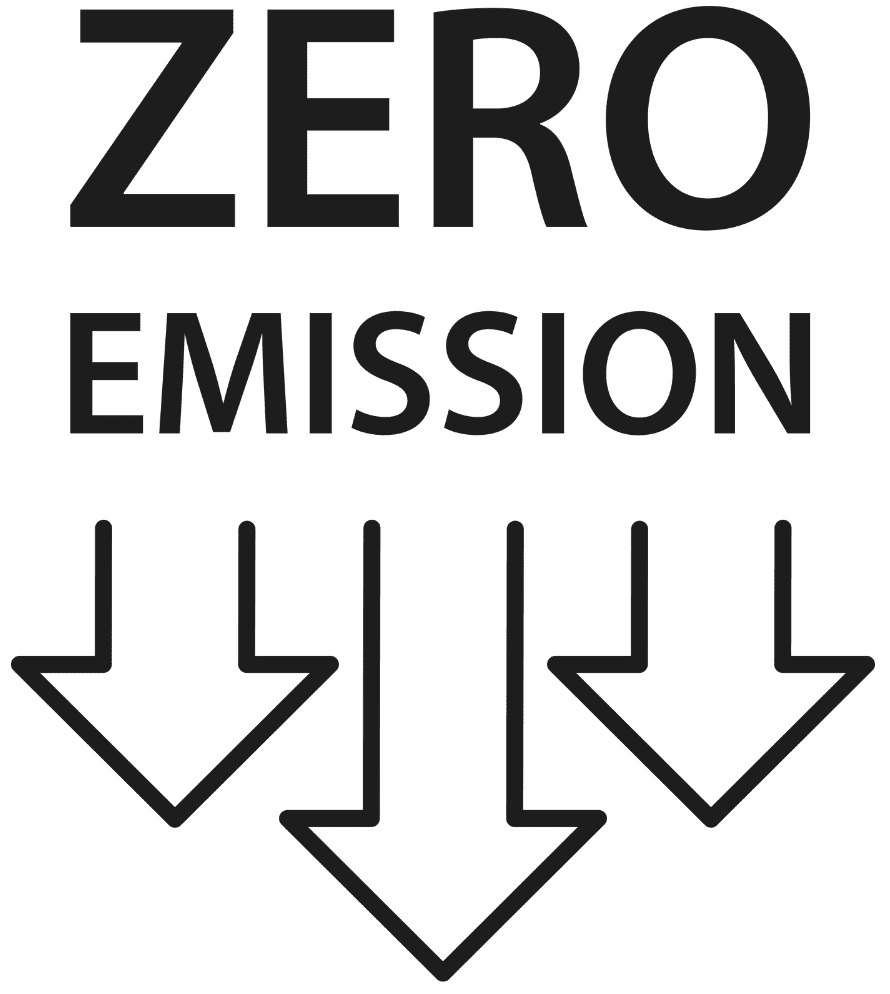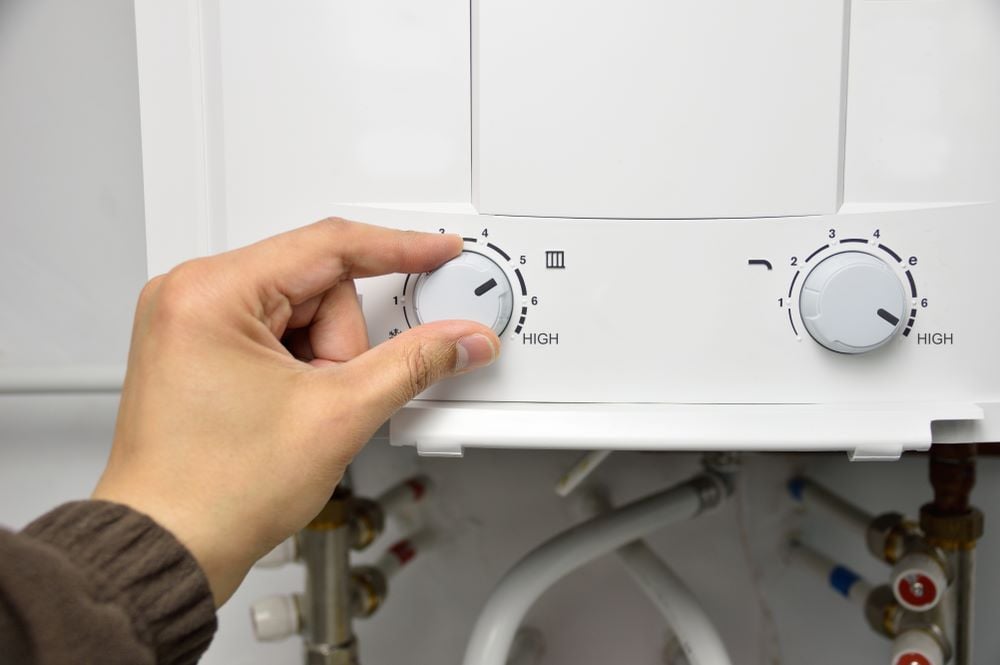Water Heater Replacement Gas to Electric
5 Days- That's a Lightning Fast Turnaround Time!
1
Upload Files and Pay
Upload PDF or CAD files, and pay to start the process. An engineer is auto-assigned to your project.
2
Document Review
An engineer will review all the documents shared and connect with you if anything else is required. Initial work starts.
3
Work Starts
Actual design/ report creation work begins.
4
Quality Check
The design and report are checked by the project manager to make sure 100% quality work is delivered.
5
Delivery
The design/ report is delivered to you.
NEED HELP OR ADDITIONAL INFORMATION?
CALL US NOW
(646) 776-4010Get Your Water Heater Replacement Gas to Electric In 3 Easy Steps
0%
Sign the lease document by acquiring load letter within
5 days
Assess the load of the equipment accurately
0 Errors
Get approval from Con Ed and other agencies
All in One Go
Get load letter for office, retail, restaurant, education
All Occupancy Types
$ 750
per load letter
Documents Required
Existing heater room plans in CAD, water heater layout plan/markup & photos.
Delivery Time & Standards
We deliver your design (digitally) within 5 business days as per Local/IPC standards.
What's not Covered
This service does not cover site visits, stamping, DOB/DEP filing, and more than 2 minor iterations.
Service Constraint
The service fee is applicable for per water heater.
$500*
Water Heater Replacement


Improve efficiency and save up to 50% on cost.


Error-free design that matches your requirements.


Get improved performance with no emission.


Get approval from DOB and other agencies.
Water Heater Replacement Gas to Electric
Code compliant design
We design all gas to electric water heater replacement according to well-established state, and local authority codes to ensure 100% compliance.
Improve energy efficiency
Upgrade with an energy-efficient system that will improve safety, environmentally sustainable and lowers the costs.
Reduce costs
Convert your water heaters from gas to electric that uses a more cost-effective energy type that saves cost for you.


Our on-demand engineering expert
Still not sure about how to proceed?
YOU CAN WRITE TO ME AT inquiry@ny-engineers.com
| Electric | Gas | |
|---|---|---|
| Cost of installation | Low | High |
| Lifespan | High | Low |
| Safety | High | Low |
| Needs DOB Approval (permit and inspection) | Yes | Yes |
| Device size | compact | Big |
| Purchase cost ($) | Up to 800 | Up to 1000 |
| Energy Efficiency | High- more than 90% | Low- less than 85% |
| Maintenance | Low | High |
Contrasted with the customary gas-or oil-controlled water heaters, electric water heaters can save energy in more than one way:
1. Efficient heating: Electric water heaters are designed to change over power into heat energy proficiently.. Modern electric water heaters are equipped with advanced heating elements and insulation, reducing heat loss and allowing more energy to flow into the water temperature rather than being wasted to its surroundings.
2. On-demand heating: Electric water heaters can be outfitted with clocks or astute controls, permitting clients to set exact heating times. This component permits you to heat water just when you want it, and abstain from squandering energy by utilizing the heater constantly.
3. Tankless Design: Tankless Electric Water Heaters, also known as on-demand or instantaneous water heaters, only heat water when needed unlike traditional storage tank hot water, there is no standby heat loss since there is no reservoir of hot water that needs to be maintained.
4. Energy efficiency model:Manufacturers produce electric water heaters with energy saving features such as advanced insulation, high temperatures, advanced thermostats and water heaters with energy star labels, as these models meet stringent U.S. energy efficiency guidelines by Environmental Protection Agency (EPA).
5. Reduced maintenance:Electric hot water heaters generally require less maintenance than gas or oil heaters. There is no incinerator, so there is no need for annual inspections or cleaning of burners or vents, reducing maintenance costs and energy consumption.
6. No pilot light: Unlike gas water heaters, electric water heaters do not have pilot lights that burn all the time, consuming less but continuous amount of energy. This feature contributes to energy savings.
7. Integrated heat pumps:They include a heat pump technology, which take out heat from the surrounding air and uses it to heat the water. Heat pump water heaters can be importantly more energy-efficient than the standard electric water heaters, especially in hot climates.
While electric water heaters can save energy, it is foremost to note that overall energy efficiency of any water heater also depends on factors such as water heater insulation , consumption of hot water, and climatic conditions over the location of the heater . Consider using high-flow components, installing hot water lines, and setting hot water thermostat to proper temperature (about 120°F or 49°C) to increase energy savings.
By September 2021, electric water heater tariffs and various incentives in the United States would be reintroduced to encourage energy efficiency and environmentally friendly appliances do not encourage efficiency. Most of these were issued by various organizations, including the federal, state, local, and utility administrations. Please be aware, though, that since then, the rebate period may have altered. It is very significant to check most updated information from different sources or any official websites. Here are some of the common rebates you will find.
1. Federal tax credits: The federal government offers tax credits for energy-efficient home up-gradation, including some electric water heaters. Frequently, these tax credits cover a certain percentage of the cost of the equipment and are subject to specific criteria.
2. State and Local Incentives: Various states and local municipalities offering a variety of incentives, low interest loans and rebates for homeowners who install energy-efficient appliances such as electric water heaters. These incentives may vary from place to place.
3. Utility Company Rebates: Some utility companies have programs that offer rebates/discounts to customers who switch to energy-efficient appliances, including electric water heaters. These programs are often an effort to conserve energy.
4. Energy Star Rebates: Energy Star certified electric water heaters are eligible for certain rebates or incentives in certain areas. The Energy Star label specify energy efficiency and environmental performance.
Transforming hot water from gas to electricity can be a complex and potentially dangerous task, as it requires considerable modifications to the electrical and plumbing components. It's essential to consult with plumbing experts or electricians skilful in water heater conversion measurement.
However, the general outline for the steps involved in this process include:
1. Turn off the Gas Supply: To guarantee that no gas leaks occur during the switchover, make sure to turn off the gas supply to the water heater before beginning any work.
2. Drain the Water Heater: Drain all of the water from the water heater's tank and turn off the water supply. Your home's hot water tap might need to be turned on to facilitate draining.
3. Disconnect the Gas Line: Carefully disconnect the gas supply line from the gas control valve and burner assembly. Cover the gas line to prevent gas leakage.
4. Remove the Gas Burner: Remove the gas burner assembly and any attachments from the water heater.
5. Disconnect the Gas Control Valve: Disconnect the gas control valve from the water heater, ensuring that any gas fittings are securely closed to prevent leaks.
6. Install an Electric Heater: Purchase and install the correct heater that matches the model of your water heater. Follow the manufacturer’s instructions for proper installation.
7. Install a New Power Cord: Since you arе switching to an еlеctric watеr hater, you will nееd to plug thе hеatеr cord into thе corrеct powеr supply. To ensure safety and compliance, this stеp should only be performed by a licеnsеd еlеctrician.
8. Replace the Thermostat: Electric water heaters use a different thermostat than gas appliances. Install a suitable thermostat designed for electric water heaters.
9. Reconnect water lines: Reconnect the water heater's water supply lines. Ensuring that all connections are secure and watertight.
10. Fill and Test the Water Heater: Once all parts are installed, fill the water heater tank with water. Switch on the water heater's electricity to start heating the water. Confirm that there are no leaks and the water heater is working properly.
11. Local Code Compliance: Ensure that the transformed electric boiler complies with the local building codes and regulations.
Attempting to modify this variable without knowledge can be dangerous and may void warranties on the water heater. Always consult with a qualified professional to safely and successfully convert gas to electricity.

1. Traditional Water Storage Systems: These are the most common types, which have a tank in which the hot water is stored, and then distributed through plumbing when needed.
2. Tankless Water Heaters: Also known as on-demand water heaters, they heat water directly without the need for a storage tank, providing instant hot water.
3. Heat Pump Water Heaters: These devices can heat water by using electricity to transfer heat from the air or from the ground, making them energy-efficient.
4. Solar Water Heating Systems: The process of heating water is achieved by utilizing the abundant solar energy, typically accomplished by harnessing solar heat through collectors located on rooftops.
5. Condensing Water Heaters: These recently developed units extract extra heat from exhaust gases, making them highly efficient.
6. Indirect Water Heater: when connected to the boiler the heat of the boiler is used to indirectly heat the water, making them suitable for homes with a boiler system.
7. Hybrid Water Heaters: Integrating the features of tankless & storage water heaters, these units offer energy efficient characteristics and provide a continuous supply of hot water.
8. Point-of-Use Water Heaters: These are smaller, specialized units designed to provide hot water at specific locations, like under-sink installations.
At NY Engineers our aim is to provide you energy efficient and cost effective solutions. We have assisted more than 100 customers switch from gas to electric water heaters that improved safety and saved cost.
Our engineers are experts to design water heater systems that compl with codes. We are licensed in all 50 states and can help you with designs that are accepted by DOB in one go.
Please reach out at (646) 776-4010 to know more.
Comparison between Gas and Electric Water heaters
| Electric | Gas | |
|---|---|---|
| Cost of installation | Low | High |
| Lifespan | High | Low |
| Safety | High | Low |
| Needs DOB Approval (permit and inspection) | Yes | Yes |
| Device size | compact | Big |
| Purchase cost ($) | Up to 800 | Up to 1000 |
| Energy Efficiency | High- more than 90% | Low- less than 85% |
| Maintenance | Low | High |
How Electric Water heaters save energy?
Contrasted with the customary gas-or oil-controlled water heaters, electric water heaters can save energy in more than one way:
1. Efficient heating: Electric water heaters are designed to change over power into heat energy proficiently.. Modern electric water heaters are equipped with advanced heating elements and insulation, reducing heat loss and allowing more energy to flow into the water temperature rather than being wasted to its surroundings.
2. On-demand heating: Electric water heaters can be outfitted with clocks or astute controls, permitting clients to set exact heating times. This component permits you to heat water just when you want it, and abstain from squandering energy by utilizing the heater constantly.
3. Tankless Design: Tankless Electric Water Heaters, also known as on-demand or instantaneous water heaters, only heat water when needed unlike traditional storage tank hot water, there is no standby heat loss since there is no reservoir of hot water that needs to be maintained.
4. Energy efficiency model:Manufacturers produce electric water heaters with energy saving features such as advanced insulation, high temperatures, advanced thermostats and water heaters with energy star labels, as these models meet stringent U.S. energy efficiency guidelines by Environmental Protection Agency (EPA).
5. Reduced maintenance:Electric hot water heaters generally require less maintenance than gas or oil heaters. There is no incinerator, so there is no need for annual inspections or cleaning of burners or vents, reducing maintenance costs and energy consumption.
6. No pilot light: Unlike gas water heaters, electric water heaters do not have pilot lights that burn all the time, consuming less but continuous amount of energy. This feature contributes to energy savings.
7. Integrated heat pumps:They include a heat pump technology, which take out heat from the surrounding air and uses it to heat the water. Heat pump water heaters can be importantly more energy-efficient than the standard electric water heaters, especially in hot climates.
While electric water heaters can save energy, it is foremost to note that overall energy efficiency of any water heater also depends on factors such as water heater insulation , consumption of hot water, and climatic conditions over the location of the heater . Consider using high-flow components, installing hot water lines, and setting hot water thermostat to proper temperature (about 120°F or 49°C) to increase energy savings.
Rebates:
By September 2021, electric water heater tariffs and various incentives in the United States would be reintroduced to encourage energy efficiency and environmentally friendly appliances do not encourage efficiency. Most of these were issued by various organizations, including the federal, state, local, and utility administrations. Please be aware, though, that since then, the rebate period may have altered. It is very significant to check most updated information from different sources or any official websites. Here are some of the common rebates you will find.
1. Federal tax credits: The federal government offers tax credits for energy-efficient home up-gradation, including some electric water heaters. Frequently, these tax credits cover a certain percentage of the cost of the equipment and are subject to specific criteria.
2. State and Local Incentives: Various states and local municipalities offering a variety of incentives, low interest loans and rebates for homeowners who install energy-efficient appliances such as electric water heaters. These incentives may vary from place to place.
3. Utility Company Rebates: Some utility companies have programs that offer rebates/discounts to customers who switch to energy-efficient appliances, including electric water heaters. These programs are often an effort to conserve energy.
4. Energy Star Rebates: Energy Star certified electric water heaters are eligible for certain rebates or incentives in certain areas. The Energy Star label specify energy efficiency and environmental performance.
Steps in converting water heater from gas to electricity:
Transforming hot water from gas to electricity can be a complex and potentially dangerous task, as it requires considerable modifications to the electrical and plumbing components. It's essential to consult with plumbing experts or electricians skilful in water heater conversion measurement.
However, the general outline for the steps involved in this process include:
1. Turn off the Gas Supply: To guarantee that no gas leaks occur during the switchover, make sure to turn off the gas supply to the water heater before beginning any work.
2. Drain the Water Heater: Drain all of the water from the water heater's tank and turn off the water supply. Your home's hot water tap might need to be turned on to facilitate draining.
3. Disconnect the Gas Line: Carefully disconnect the gas supply line from the gas control valve and burner assembly. Cover the gas line to prevent gas leakage.
4. Remove the Gas Burner: Remove the gas burner assembly and any attachments from the water heater.
5. Disconnect the Gas Control Valve: Disconnect the gas control valve from the water heater, ensuring that any gas fittings are securely closed to prevent leaks.
6. Install an Electric Heater: Purchase and install the correct heater that matches the model of your water heater. Follow the manufacturer’s instructions for proper installation.
7. Install a New Power Cord: Since you arе switching to an еlеctric watеr hater, you will nееd to plug thе hеatеr cord into thе corrеct powеr supply. To ensure safety and compliance, this stеp should only be performed by a licеnsеd еlеctrician.
8. Replace the Thermostat: Electric water heaters use a different thermostat than gas appliances. Install a suitable thermostat designed for electric water heaters.
9. Reconnect water lines: Reconnect the water heater's water supply lines. Ensuring that all connections are secure and watertight.
10. Fill and Test the Water Heater: Once all parts are installed, fill the water heater tank with water. Switch on the water heater's electricity to start heating the water. Confirm that there are no leaks and the water heater is working properly.
11. Local Code Compliance: Ensure that the transformed electric boiler complies with the local building codes and regulations.
Attempting to modify this variable without knowledge can be dangerous and may void warranties on the water heater. Always consult with a qualified professional to safely and successfully convert gas to electricity.
Types of water heaters-

1. Traditional Water Storage Systems: These are the most common types, which have a tank in which the hot water is stored, and then distributed through plumbing when needed.
2. Tankless Water Heaters: Also known as on-demand water heaters, they heat water directly without the need for a storage tank, providing instant hot water.
3. Heat Pump Water Heaters: These devices can heat water by using electricity to transfer heat from the air or from the ground, making them energy-efficient.
4. Solar Water Heating Systems: The process of heating water is achieved by utilizing the abundant solar energy, typically accomplished by harnessing solar heat through collectors located on rooftops.
5. Condensing Water Heaters: These recently developed units extract extra heat from exhaust gases, making them highly efficient.
6. Indirect Water Heater: when connected to the boiler the heat of the boiler is used to indirectly heat the water, making them suitable for homes with a boiler system.
7. Hybrid Water Heaters: Integrating the features of tankless & storage water heaters, these units offer energy efficient characteristics and provide a continuous supply of hot water.
8. Point-of-Use Water Heaters: These are smaller, specialized units designed to provide hot water at specific locations, like under-sink installations.
How NY Engineers can help?
At NY Engineers our aim is to provide you energy efficient and cost effective solutions. We have assisted more than 100 customers switch from gas to electric water heaters that improved safety and saved cost.
Our engineers are experts to design water heater systems that compl with codes. We are licensed in all 50 states and can help you with designs that are accepted by DOB in one go.
Please reach out at (646) 776-4010 to know more.


